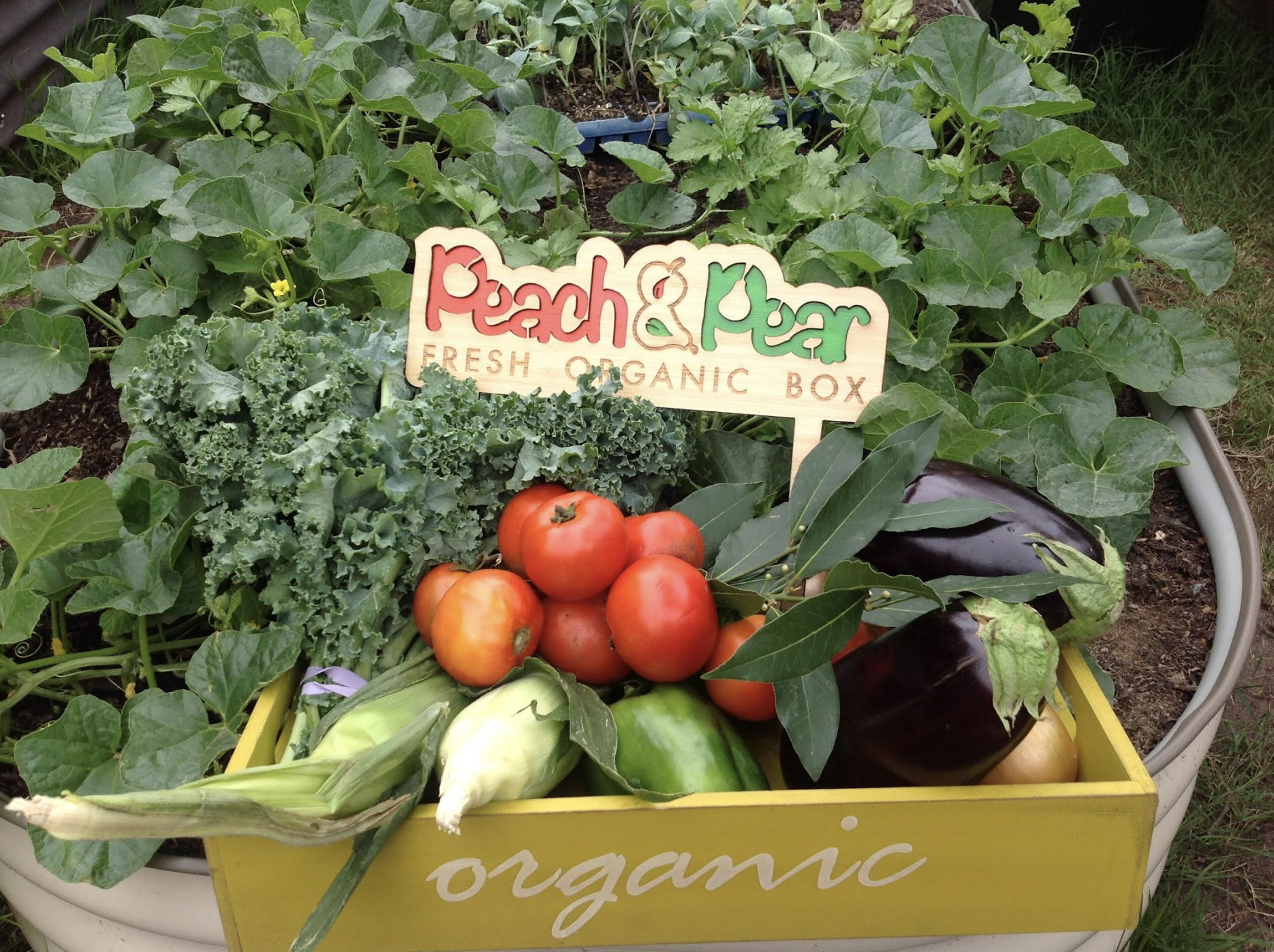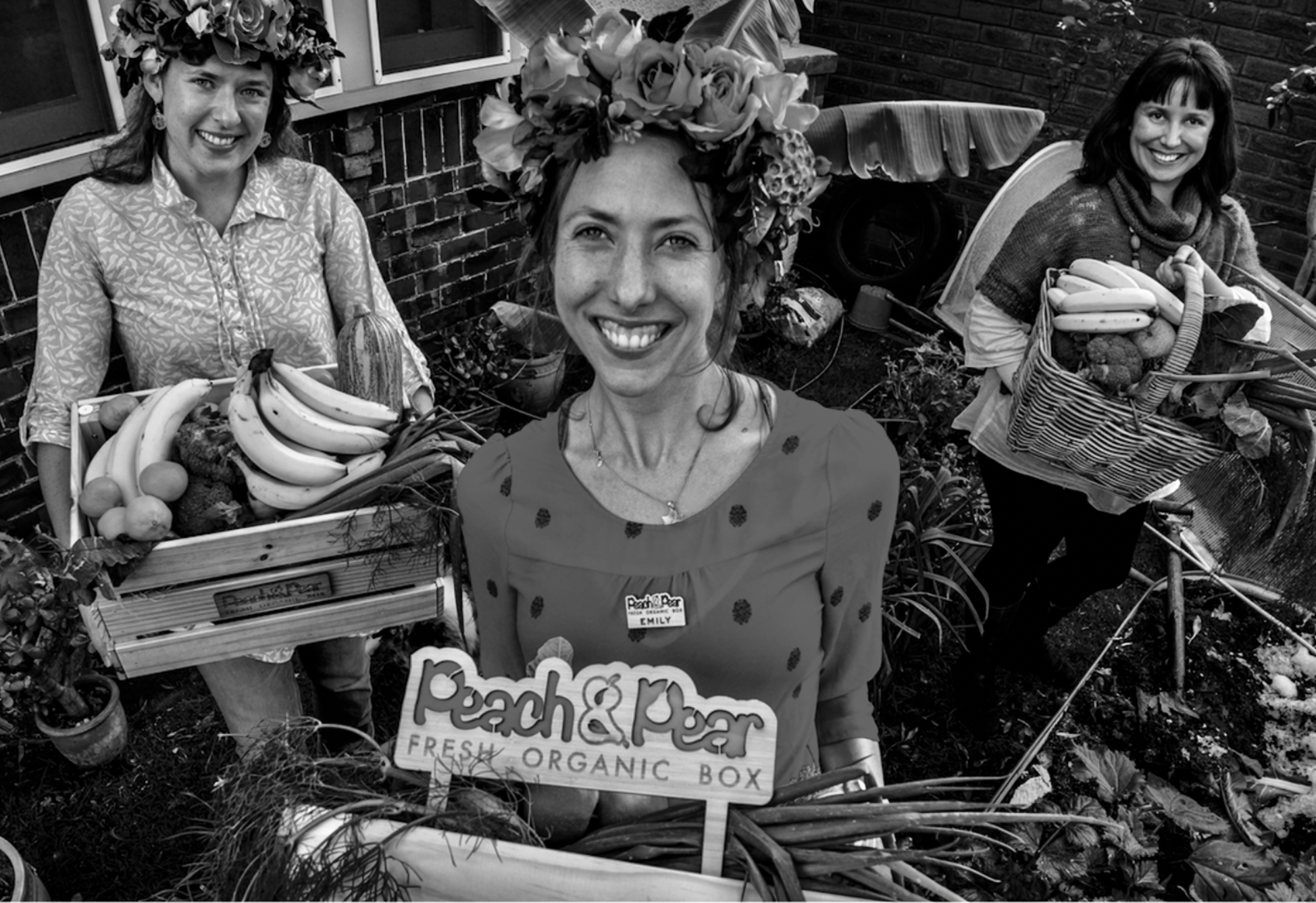Peach n Pear Food Community, Melbourne, & Hobart Australia (October 2014 – September 2021)
Founder, designer & systems co-creator
Peach n Pear was a multi-layered design experiment and small-scale food community grounded in the principles of SLOC (Small, Local, Open, Convivial) systems design (Manzini, 2014), feminist economic theory, and regenerative local food practice. Over five years, it demonstrated how community-led logistics can build meaningful relationships between people, place, and food, while also transforming the daily routines, economies, and food ecologies of its participants.
🍐 The Experiment
At its core, Peach n Pear was a community food box service:
Procuring 100% certified organic produce from local farms
Packed fortnightly by volunteers, often parents and children
Distributed via the designer’s home, verandah, and later a neighbourhood house
Funded entirely through weekly contributions; the organiser earned 15% for coordination and transport
Operated with zero formal infrastructure, using upcycled boxes and relational trust
Purpose & Design Intentions
Peach n Pear was designed at three levels:
To nourish the designer’s family and friends with accessible, local organic food
To prototype tangible alternatives to supermarket supply chains
To practice and politicise community economies as part of everyday life
It drew upon diverse economies theory (Gibson-Graham et al., 2013) and placed emphasis on:
Localised logistics
Feminist economic agency
Joyful, slow transformation
Self-sustaining enterprise from home
Methods & Elements of Convivial Food Design
Deep community engagement
Co-design workshops
Seasonal and sensory experiences
Gastronomic storytelling
Fermentation classes and community dinners
The project made visible how delivery, growing, pleasure, and narrative could be reintegrated into the food system. Participants saved seeds, swapped recipes, and experienced a visceral sense of connection to land, farmer, and flavour. Children helped pack boxes, and the weekly “box day” became a family ritual, shifting both economy and culture in the everyday.
Systemic Impact
Peach n Pear distributed ~30 boxes each fortnight for five years, inspired spin-off groups in Melbourne and regional Victoria, and led many participants to opt out of supermarkets entirely. For the designer and many others, this shift was not only about health or ethics, but about relational nourishment, economic empowerment, and joy.
“It became difficult to buy fresh food from the supermarket when the food I was accessing was so superior, and the relationships I was forming were so valuable.”
National Scaling Scenario
Peach n Pear’s model, grounded, replicable, and self-sustaining, offers a blueprint for a decentralised, regenerative food system at scale. If scaled to:
50,000 food communities
× 25 households per hub
× $55 per weekly box
× 45 weeks per year
= 💰 $3.09 billion annually
directly into local farm and food economies
Feasibility & Infrastructure Potential
According to the ABS and local government data, Australia includes:
~16,000 official suburbs/localities
~5,000 regional towns and rural communities
~9,000 urban neighbourhoods
That’s roughly 30,000 community clusters, and many could support 3–10 food groups each, based on size and infrastructure.
With homes, neighbourhood houses, schools, and faith centres as hosts, this model could scale relationally, not corporately.
What This Project Demonstrates
Food as infrastructure for community sovereignty
A low-barrier model for dignified food access and circular economy
A system that builds social trust, ecological literacy, and local employment
A case for policy support, concessional finance, or pilot investment in neighbourhood-based logistics


